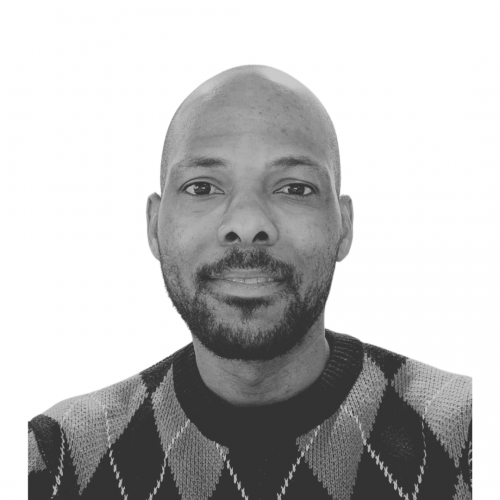Looking at “Sub-Saharan Africas”
By focusing on “Sub-Saharan Africas” this programme aims to move away from viewing Africa as a homogenous entity. Instead, starting from the premise of a plural continent, it seeks to break away from generalizing approaches and avoid the related negative and essentialising biases.
By proposing a research programme on a semi-continental scale, our aim is twofold. Firstly, we seek to highlight the complexities and diversities of these regions beyond the discourse that approaches them as large entities (‘Southern Africa’, ‘Central Africa’, ‘West Africa’ or ‘East Africa’). Secondly, thinking about Africa and the world involves highlighting and questioning the ancient and contemporary connections between these regions and the rest of the world. In so doing, the aim is to restore the continent to its rightful place in terms of both the type of knowledge produced and the processes by which that knowledge is developed.
The circulation of scientific knowledge – sometimes (even often) hindered by financial, political, institutional, or discriminatory issues – results in a glaring lack of cooperation with African researchers. Moreover, there is still a strong tendency in France to reject the scientific validity of non-Western social sciences, leading to the marginalisation of research produced in Africa about Africa and to the epistemic domination of Western social sciences. Through interdisciplinary projects, we aim to promote the creation of a “common space, a factor of cohesion between different types of knowledge” (Gusdorf, 1990) where researchers from all origins, training, and disciplines in the humanities and social sciences can find their place.
Our research topics
1/ Colonial legacies and decolonial perspectives
Sub-Saharan Africas are often perceived as dominated by heavy ‘legacies’ influencing the trajectories of postcolonial societies: in addition to the consequences of the slave trade and colonisation, there is the burden of supposedly tenacious ‘traditions’. Understanding and rethinking the true weight of colonial legacies also means highlighting the agency of actors. This first theme aims to question these discourses and contribute to the debates they generate through two approaches:
- The application of postcolonial and decolonial theories to Sub-Saharan Africas – theories born in Latin America and still often poorly received in France;
- Exploring the notion of “colonial legacy”, which interrogates the processes of transmitting colonial heritage and remains under-conceptualized.
2/ Political dynamics and transformations
In recent years, political transformations and regime changes have multiplied across the continent. Military coups, constitutional revisions, contested elections, armed insurgencies sometimes claiming religious extremism, regression of individual and public liberties: these events have given rise to theories postulating a “return of authoritarianism” on the continent or the emergence of “new categories of African authoritarianism”. In reality, such dynamics result from a multi-century regional history and from plural, eminently local socio-political logics. They convey social, economic, political, cultural or religious demands and reveal multifaceted crises. By focusing on the current political dynamics of Sub-Saharan Africas, this theme will question:
- The notion of “African authoritarianism(s)”, its uses, and effects;
- Citizens’ relationships to the state;
- The role of social movements and their influence on public policies and political agendas;
- The impact of foreign interventions (investments, international aid, diplomatic policies) and the responses provided by national actors (state representatives, opposition members, etc.) as well as local actors (populations).
3/ Conflicts and violence(s)
Western analytical frameworks on violence in Sub-Saharan Africas are often dominated by shortcuts and hasty classifications, which perpetuate clichés inherited partly from colonial classifications. This theme aims to (re)think the concepts of violence(s) and conflicts in Sub-Saharan Africas and their articulation, to interrogate:
- The mechanisms of escalation and entry into violence;
- The role of images and representations in the excessive media coverage of violence, often coupled with the idea that current conflicts are more deadly than before;
- The shifting boundaries of warfare today, as well as other types of violence (political, symbolic, state violence, etc.) that also bear conflict.
4/ Risks, health, and environment
Although African territories are minimally responsible for the global environmental deterioration, they are among the regions most affected by the climate crisis. The consequences are not only ecological but also impact health and lifestyles. These repercussions are numerous, ranging from the multiplication of conflicts and risk zones to situations of famine and drought, as well as the spread of diseases and increased vulnerability to epidemics.
In this context, the triptych of risks, health, and environment offers an essential perspective for understanding contemporary Sub-Saharan societies and their forms of governance. The aim is to study:
- The issue of risk, both in its probabilistic dimension and in the context of crisis, by examining the mechanisms put in place to address it;
- The diverse (and sometimes competing) ways of conceiving risks, disasters, and their impacts;
- How each of these factors (risks, environment, health) influences the fundamental structures of society.
5/ Gender and societies
The concept of “gender” was developed in the 1970s to analyse the power relationships that structure social life. However, when transposed into public action and international spheres, it is often euphemised. It has become a descriptive tool rather than a platform for advocacy, softening the discourse on power and inequality reproduction.
At the same time, globally, there are increased ‘anti-gender’ mobilisations and campaigns, which often claim to defend anti-imperialism and supposed ‘African values’ in Sub-Saharan contexts. By focusing on how these issues are embodied and take shape in Sub-Saharan Africas, the aim is to analyse the strategies employed by populations, government representatives, and international organisations:
- How is the concept of gender translated, interpreted, and transposed, and with what adaptations, resistance, and reinterpretations?
- In what ways do postcolonial situations shape, facilitate, or hinder gender promotion or opposition interventions?
- What are the effects on local populations and contexts, and how do local gender conceptions and norms influence their implementation and reception?
- How do these interventions interact with, influence, or even reshape power relations at different scales?



